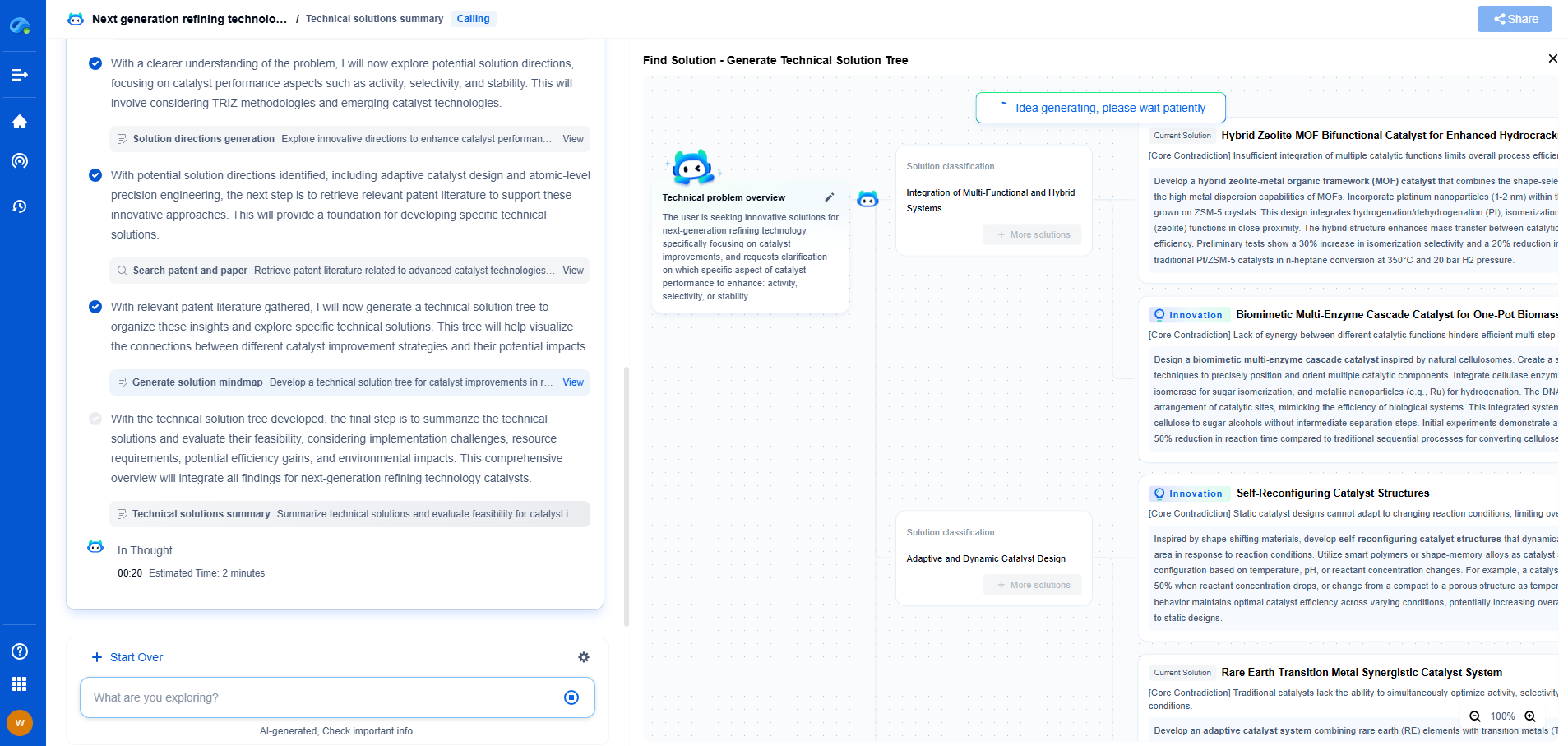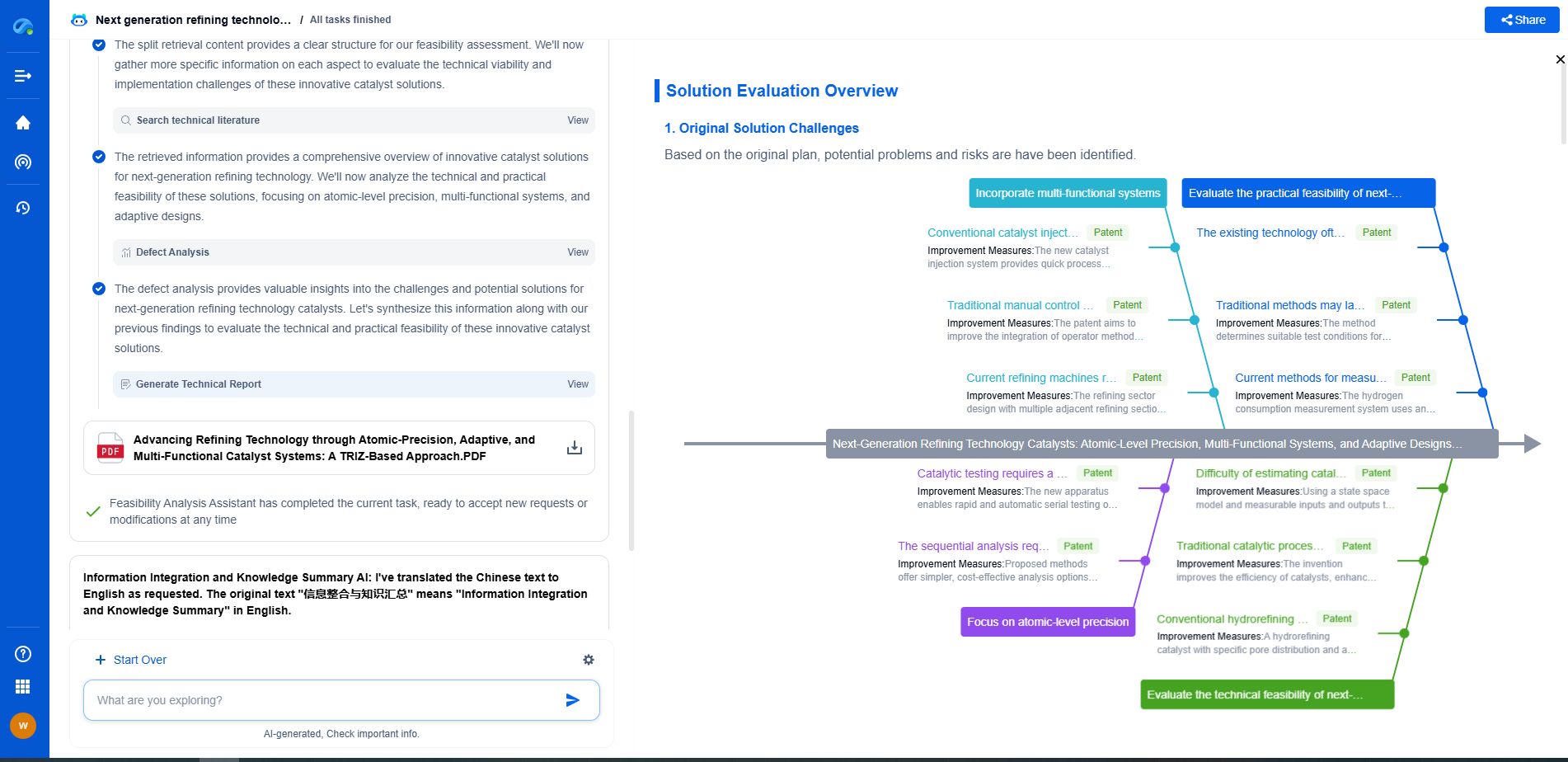What Is Trustworthy AI and Why Does It Matter?
JUN 26, 2025 |
In today's rapidly evolving technological landscape, artificial intelligence (AI) has become an integral part of various industries, from healthcare to finance, and from entertainment to education. As AI continues to permeate our daily lives, the concept of "trustworthy AI" has emerged as a critical focus for researchers, developers, and policymakers. But what exactly is trustworthy AI, and why does it hold such importance?
Trustworthy AI refers to AI systems designed and deployed to be reliable, safe, and aligned with ethical principles. It is characterized by several key attributes, including transparency, accountability, fairness, and privacy. These attributes ensure that AI systems not only perform their intended functions effectively but also adhere to societal values and ethical standards.
The Importance of Transparency
One of the foundational pillars of trustworthy AI is transparency. Transparency in AI involves making the decision-making processes of AI systems clear and understandable to end-users and stakeholders. For AI systems to be trusted, it is crucial that users can comprehend how decisions are made, especially in critical applications like healthcare diagnostics or automated financial trading.
Achieving transparency can involve providing clear documentation, using explainable AI techniques, and offering user-friendly interfaces that allow individuals to interrogate and understand AI decisions. This transparency fosters trust by reducing the "black box" nature often associated with complex AI models.
Ensuring Accountability
Accountability is another essential component of trustworthy AI. It revolves around the idea that there should be mechanisms in place to hold AI systems and their creators responsible for their actions and outcomes. This includes establishing clear lines of responsibility in case of errors, biases, or unintended consequences resulting from AI operations.
In practice, accountability can be implemented through regulatory frameworks, industry standards, and organizational policies that define who is responsible for the AI's behavior and how issues will be addressed. Accountability ensures that AI systems operate within a framework that prioritizes the well-being of users and society at large.
Promoting Fairness
Fairness in AI is about ensuring that AI systems do not perpetuate or exacerbate biases present in the data they are trained on. Biases can arise from various sources, including historical data, societal inequalities, or algorithmic design choices. Trustworthy AI aims to identify, mitigate, and eliminate such biases to ensure equitable treatment of all individuals, regardless of race, gender, age, or other factors.
Developers can promote fairness by using diverse and representative datasets, implementing bias detection and correction methods, and continuously monitoring AI systems for biased outcomes. Fair AI systems contribute to social justice and equal opportunities, which are fundamental to building trust.
Safeguarding Privacy
In an era where data is a valuable asset, safeguarding privacy is paramount to trustworthy AI. Privacy involves protecting individuals' personal information from unauthorized access and ensuring that data is used ethically and responsibly. This is particularly important in AI applications that process sensitive information, such as healthcare records or personal financial data.
Implementing robust data protection measures, such as encryption, anonymization, and secure data storage, can help maintain privacy. Additionally, adhering to legal regulations like the General Data Protection Regulation (GDPR) and obtaining informed consent from users are critical steps in respecting privacy rights and building trust in AI systems.
Why Trustworthy AI Matters
The significance of trustworthy AI extends beyond ethical considerations; it is also essential for the widespread adoption and success of AI technologies. Trustworthy AI fosters public confidence, reducing resistance and skepticism towards AI innovations. When people trust AI systems, they are more likely to embrace and benefit from them, leading to accelerated technological progress and societal advancement.
Moreover, trustworthy AI can prevent potential harm caused by AI systems. By prioritizing transparency, accountability, fairness, and privacy, stakeholders can mitigate risks associated with AI, such as discriminatory practices, data breaches, and unintended negative consequences. Trustworthy AI thus serves as a safeguard for both individuals and society.
Conclusion
As AI continues to reshape our world, the quest for trustworthy AI becomes increasingly crucial. By embracing principles of transparency, accountability, fairness, and privacy, we can ensure that AI systems operate in alignment with ethical standards and societal values. Trustworthy AI not only builds confidence in technology but also paves the way for a future where AI contributes positively to human lives. It is the responsibility of developers, policymakers, and society as a whole to prioritize and promote trustworthy AI, ensuring that the benefits of AI are realized without compromising ethical integrity.
Unleash the Full Potential of AI Innovation with Patsnap Eureka
The frontier of machine learning evolves faster than ever—from foundation models and neuromorphic computing to edge AI and self-supervised learning. Whether you're exploring novel architectures, optimizing inference at scale, or tracking patent landscapes in generative AI, staying ahead demands more than human bandwidth.
Patsnap Eureka, our intelligent AI assistant built for R&D professionals in high-tech sectors, empowers you with real-time expert-level analysis, technology roadmap exploration, and strategic mapping of core patents—all within a seamless, user-friendly interface.
👉 Try Patsnap Eureka today to accelerate your journey from ML ideas to IP assets—request a personalized demo or activate your trial now.
- R&D
- Intellectual Property
- Life Sciences
- Materials
- Tech Scout
- Unparalleled Data Quality
- Higher Quality Content
- 60% Fewer Hallucinations
Browse by: Latest US Patents, China's latest patents, Technical Efficacy Thesaurus, Application Domain, Technology Topic, Popular Technical Reports.
© 2025 PatSnap. All rights reserved.Legal|Privacy policy|Modern Slavery Act Transparency Statement|Sitemap|About US| Contact US: help@patsnap.com

